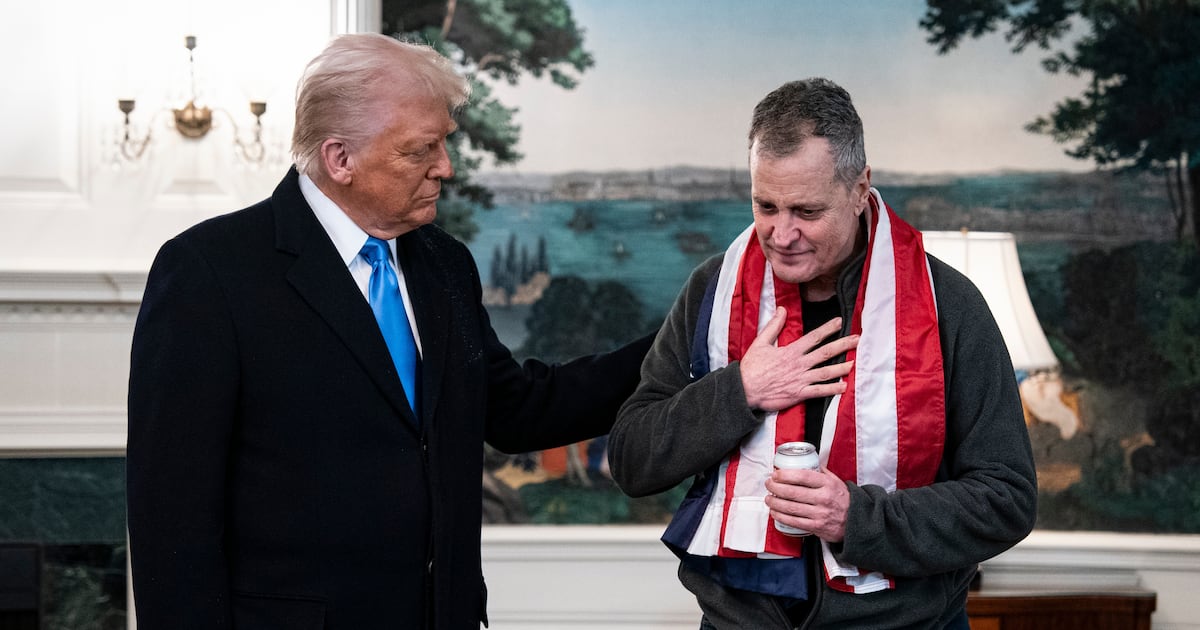As the dust settles, it grows clearer and clearer just what a fast one Attorney General Bill Barr pulled on America.
Last June, he wrote an opinion—out of nowhere, unsolicited—arguing that President Trump did not obstruct justice in his statements about the firing of James Comey and that Robert Mueller’s obstruction investigation was “fatally misconceived.”
Gee, guess what happened next? Barr was nominated to be attorney general—to oversee the Mueller probe, that is—last Dec. 7. Two weeks later, word of that memo got out. But the GOP-controlled Senate of course confirmed him in February.
And guess what happened next? He said—this past weekend—that he found no basis for an obstruction charge.
Well, of course he found no basis. Barr promised this verdict last year. It’s pretty obvious why he got the job after Trump dumped Attorney General Jeff Sessions for “betraying” him by following the law and recusing himself from the Mueller probe.
Barr appears very clearly to have stepped in here to save Trump’s neck by interpreting the Mueller report in the most favorable way to Trump possible. And now, as we await the whole report, who gets to decide how much of it we’ll see, and when?
Bill Barr. Small wonder that he’s talking about weeks or even months, and about releasing only select portions of it. On Wednesday evening, House Judiciary Committee Chairman Jerry Nadler said Barr would not commit to turning over the full report. Amazing f-you brazenness, even for Trumpworld, to spin this report like this and then let us see only the parts that confirm his spin.
And it gets worse. As if that wasn’t enough, now, just 48 hours after spinning the Mueller report for Trump, we learn that he’s in on the planned next offensive against Obamacare. The New York Times reported that Barr was at first among those opposed to the administration putting its weight behind the Texas judge’s opinion calling Obamacare unconstitutional. But, in that way that ladder-climbing invertebrates have, he caved, and the Justice Department issued a statement saying it backed the Texas judge’s decision.
Remember: Barr does not need this job. He has—had—a secure reputation. Plenty of money. Could spend his days at the country club or wherever. He has chosen to jump into this soiled pasture, indeed he auditioned for it. And this is how his name will live for posterity. Trump’s volunteer hatchet man.
From the day Trump won, lots of pundits and insiders said yes, this is disturbing, but don’t worry. Our institutions are stronger than this man. The center will hold.
Twenty-something months later, and in the wake of this Barr intervention, are we still so sure of this? No, we are not. We just saw a man a) audition for the job of attorney general by saying the obstruction probe was bogus; b) get that job, with the near-unanimous assent of the president’s party (Rand Paul voted no); and c) declare the obstruction probe bogus.
The Department of Justice was exactly the kind of institution that was supposed to be stronger than Trump. Instead, it became a part of his machinery.
As did, of course, the GOP. Mitch McConnell wants to prevent the release of the Mueller report at all. Senate Judiciary Chairman Lindsey Graham, not content to leave well enough alone, vows hearings into Comey and Lisa Page and Peter Strzok and who knows who else, the obvious point of which will be to try to convince America that the Mueller probe was orchestrated by Hillary Clinton in the first place.
What other institutions will fall? Trump would seem to have a Supreme Court majority in the palm of his hands, if matters ever come to that. So no—the discouraging true answer right now is that our institutions are not proving to be stronger than Trump.
On Monday, I wrote a column asking if everything Trump has done to crush the norms we’re all taught to expect of our presidents was now just OK. On Wednesday, The New York Times’ Peter Baker picked up this line of argument, writing that “President Trump had successfully thrown out the unwritten rules that had bound other chief executives in the 45 years since President Richard M. Nixon resigned under fire, effectively expanding presidential power in a dramatic way.”
After Nixon, we had a political system that responded by passing some laws and initiating some customs that had to be followed to ensure that a Nixon wouldn’t happen again. Now that we have another Nixon, the political system should respond by passing laws that, for example, remove any existing ambiguity around something like the Trump Tower meeting. It should be against the law to take such a meeting, period.
That is what we should be doing. Instead, we’re going in the other direction. There are other investigations, and we can hold out hope for those. But so far, nothing is holding Trump in check, and nothing will until a few Republicans put party before country. Bill Barr won’t be one of them.







